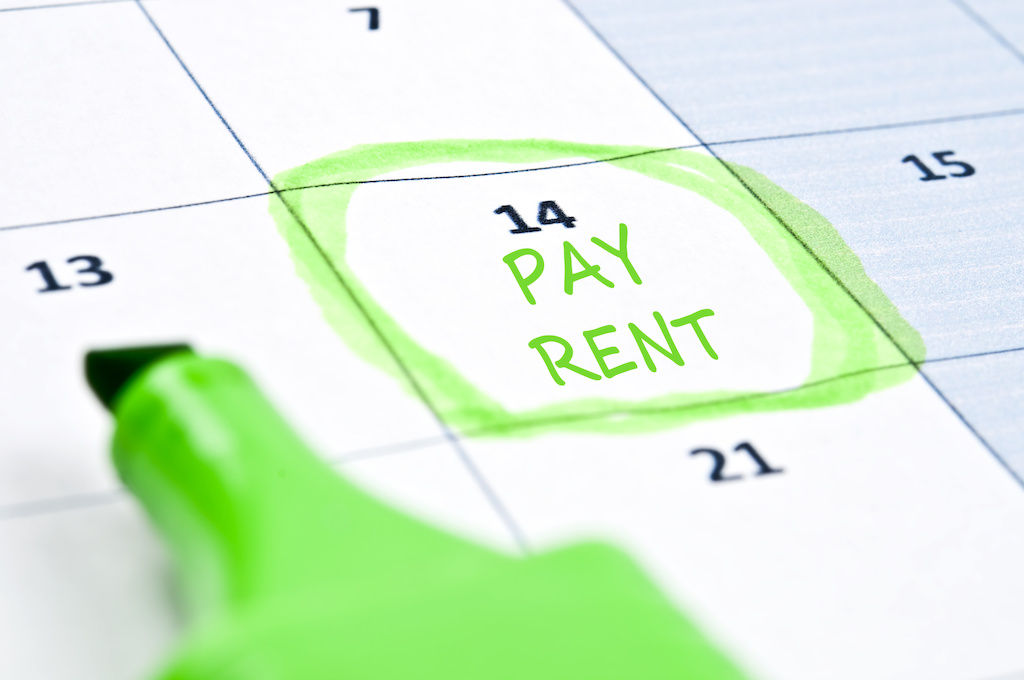National Financial Planning Month: How Much Can I Realistically Spend on Rent?
Have you ever tried balancing the costs of your hobbies with those of your basic, everyday needs? It isn’t always easy, especially for recent graduates on starting salaries, often with little to no budgeting experience.
Melisa Boutin, a Certified Financial Education Instructor and Founder of Your Money Worth, provides personal finance resources designed specifically for millennials. She shares a few easy tips to make your budget a bit more realistic without having to sacrifice the passions that keep you going.
The 50-30-20 Rule
There are countless budgeting methods designed to help you find exactly how much you should spend on regular occurrences such as rent and entertainment. Of these, Boutin says her personal favorite is the 50-30-20 rule, made popular by Senator Elizabeth Warren in her book All Your Worth: The Ultimate Lifetime Money Plan. At its core, this rule states that no more than 50% of your gross income should be spent on your needs, with 30% going toward non-essentials and 20% allocated for savings.
Boutin admits that, “although some may find it difficult to budget this way on a typical starting salary, it’s a great starting point for managing your finances as a new grad. It’s best to think of this method as an ideal to work towards as you save, pay debts and get pay raises.”
Needs
The “Needs” category is made up of everything you absolutely need to get by, including rent, groceries, utility bills, insurance, and any medications. Taking things a bit further, no more than 30% of your gross income should be spent on rent, leaving an additional 20% for your other necessities. For a quick rundown of your rent budget, take your gross income and divide it by 40. That will give you exactly 30% of your gross monthly income. For example, if you make $50,000 a year, 50,000 divided by 40 is $1,250. If you spend more than $1,250 a month on rent, you should consider finding a cheaper apartment to balance out your budget.
This is only a guideline and can vary from city to city. In fact, a 2016 study found that the average household in New York City spends 62% of their gross income on rent. For this reason, it’s always a good idea to keep in mind the average cost of living in your city when trying to make your budget conform to a predetermined number.
Another thing to be mindful of is the specific offerings of your particular apartment. It might be more expensive to live closer to your office, but that price increase could actually be offset by the ensuing decrease in transportation costs. The same can be said for other expenses, such as electric vehicles. While upgrading to an electric vehicle may make your initial costs go up slightly, your travel costs, especially for those with long commutes, will decrease significantly. This is why it’s always important to sit down and weigh all of the financial advantages and disadvantages to make sure you’re making the right choice.
Non-Essentials
Perhaps the hardest category to keep under control, the “Non-essentials,” is made up of everything you buy on a discretionary basis. This could include anything from entertainment and dining to vacations and hobbies. When trying to cut down on this category, many are often hesitant to sacrifice their livelihood just to save a few dollars.
However, Boutin says, “knowing your core values is key to balance living on a budget with having a life. If traveling is a priority for you, for instance, brown-bagging your lunch doesn’t feel so much like a sacrifice, but more so, the trade-off you happily make to pay for your next trip.”
In essence, by recognizing your passions and what makes you happy, you can cut down spending in other areas to keep your spirits high, while still saving and paying off your debts.
Another great way to reduce your spending in this tier is to take a look at your recurring payments. Each month, people spend money on Netflix, Hulu, online gaming, subscription boxes, cable, internet and an unending array of other options. The problem with services like these is that it’s often easy to forget you even have them. Take a look at your last few credit card statements, or use one of many available apps to quickly identify your spending habits. From there, take a hard look in the mirror. If you haven’t watched cable in a few weeks, it might be time to consider pulling the plug. If you live alone and aren’t using your internet for anything particularly taxing, you might be better suited for a lower internet package than the one you’re currently on. In this way, you’re getting more money in your pocket every month with minimal changes to your lifestyle.
On the other hand, Boutin warns that you should be hesitant when cutting back on things that save you time and stress. She says, “although I’m not advocating draining your bank account on Seamless orders and Uber rides, if your daily cup of Starbucks helps you start your day on the right note, find a way to cut back on something else.”
Savings
Finally, the “Savings” category is the one that takes the biggest hit for those that do not properly budget. The “Needs” and “Non-essentials” categories often balloon out of control, while the savings become smaller and smaller, or even nonexistent. Putting money away for savings, however, will lead to less stress in the long run. It’s always nice to know that if there is an emergency, you’ve got a cushion to fall back on until you can get back on your feet.
Boutin’s recommendation to improve this problem is to automate your savings directly off the top of your paycheck. If you never even see the money in your checking account, it’s harder to miss, and it essentially forces you to cut back on discretionary spending.
Alternate Methods
As with most things, the 50-30-20 rule may not be effective for everyone. Boutin has had success with other methods, including reverse budgeting and cash-envelope budgeting. However, everyone is different so it’s important to keep trying until you find one that works for your situation. She even suggests creating a hybrid method to combine the best aspects of two separate methods if that helps you better keep track of your finances.
Other Blog Posts You Might Be Interested In
- When searching for an apartment there are many things to think about, and many of them can be left forgotten. Check out our blog to make sure they stay at the top of your mind.
- Don’t let your budget affect your vacation time. Here are eight ideas for a five-star staycation at your apartment community’s pool.
This Website may include content provided by third parties, including materials provided by other users, bloggers, and third-party licensors, syndicators, aggregators, and/or reporting services. All statements and/or opinions expressed in these materials, and all articles and responses to questions and other content, other than the content provided by Greystar, are solely the opinions and the responsibility of the person or entity providing those materials. These materials do not necessarily reflect the opinion of Greystar. We are not responsible, or liable to you or any third party, for the content or accuracy of any materials provided by any third parties. The information contained within does not relate to Greystar Investment Group, LLC’s investment advisory business.






